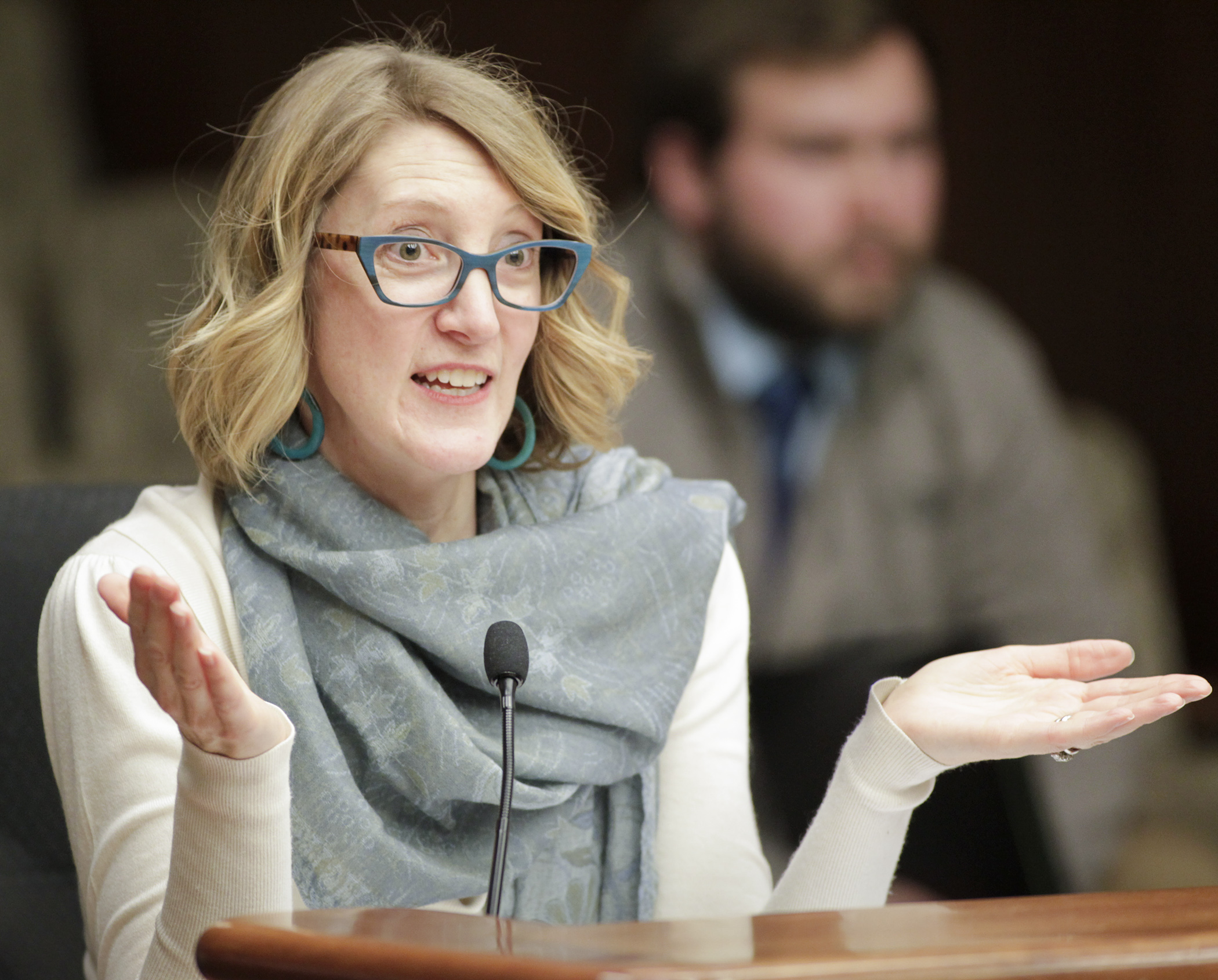Proposed ‘last dollar’ grant would help cover college costs

For a college student struggling to cover the costs of pursuing their education every last dollar counts. HF607, the so-called “Minnesota Miracle Squared,” sponsored by Rep. Jennifer Schultz (DFL-Duluth), would create a “last dollar” grant program to help undergraduate students cover the cost of tuition and other fees at public post-secondary institutions.
“Students are struggling to pay for college. Affordability is a problem,” Schultz said. “Even though [students] are working, they are struggling to pay their living expenses.”
The House Higher Education and Career Readiness Policy and Finance Committee laid the bill over Wednesday for possible omnibus bill inclusion. Its companion, SF156, sponsored by Sen. Ron Latz (DFL-St. Louis Park), awaits action by the Senate Higher Education Finance and Policy Committee.
The Office of Higher Education would implement the program and distribute grants after reviewing submitted applications. Eligible students would need to be residents of Minnesota and eligible for state and federal financial aid.
Once approved, students would need to maintain “satisfactory academic progress,” including a grade-point average of at least 2.5 at the end of each academic term. A grant could be re-applied for annually.
Awarded grants would be in an amount for the cost of tuition, minus any federal Pell grant, state aid, or scholarships received. Grants would be limited by an adjusted gross income threshold of $125,000 or less for a dependent student, and $75,000 or less for an independent one.
“This program will help low-income families attend our higher education institutions,” Schultz said.
Legislators were empathetic of students’ struggles; however, concerns were raised over specifics, such as the amount of required state funding. No fiscal note was provided.
“It’s important that we have an idea of how much this is going to cost,” Rep. Drew Christensen (R-Savage) said. “It’s obvious that this could be a very, very expensive proposition. I don’t see there’s a way we could do this without raising taxes.”
“I’m not a fan of free college. I don’t think it’s sustainable in the long-run,” Rep. Ben Lien (DFL-Moorhead) said. He conceded that something does need to be done to rein in rising tuition costs.
“This doesn’t make college free. It helps, but it’s not free,” Schultz said. “If we think long-term, this could create a big payoff for the state. This is a long-term investment.”
Related Articles
Search Session Daily
Advanced Search OptionsPriority Dailies
Legislative leaders set 2026 committee deadlines
By Lisa Kaczke Legislative leaders on Tuesday officially set the timeline for getting bills through the committee process during the upcoming 2026 session.
Here are the three deadlines for...
Legislative leaders on Tuesday officially set the timeline for getting bills through the committee process during the upcoming 2026 session.
Here are the three deadlines for...